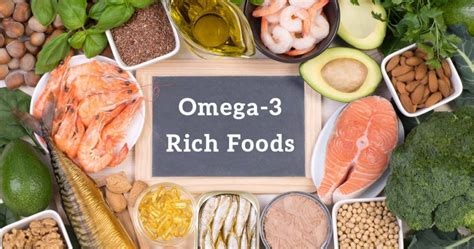The term “essential fatty acids” relates to oils/fats which must be obtained from diet. Essential fatty acids (EFAs) include the Omega-3 and Omega-6 oils. While Omega-9 oils are not truly “essential” because they can be synthesized in the body, sources include avocado, almond, peanut, and walnut oils.
Omega-3 oils are contained in cold water fish including herring, wild-caught salmon, mackerel, sardines, anchovies and rainbow trout with plant sources including seaweed, flaxseeds/linseeds, pumpkin seeds, and black currant seeds. Sources of omega-6 oils include olive, sunflower, corn, and soybean oils. Given the amount of genetic modification and processing involved, I recommend avoiding soy, corn, sunflower, and canola oils (as well as any products that contain any of these oils).
The essential components of omega-3 oils are:
- eicosapentaenoic acid (EPA), beneficial for heart health and good circulation, supporting immune function, improving joint flexibility, healthy skin and hair, and cell membrane structure; and
- docosahexaenoic acid (DHA), beneficial for brain function, nervous system, pregnancy and foetal development, protecting the aging mind, improving behaviour, focus and learning in children, healthy eyes, and reducing harmful effects of stress.
It is these EFAs that help maintain healthy cell membranes while also promoting the body’s natural anti-inflammatory response, a function that can relieve many chronic conditions, which are all too often inhibited by poor nutrition. Dr Bruce Lipton explains the importance of the cell membrane in his book The Biology of Belief. Not only is the cell membrane like a protective wall surrounding each of the trillions of cells in our body, but it is also the regulator of everything that enters and leaves, as well as being the mechanism by which your body translates environmental signals into behaviour.
For this reason, it should not be surprising that EFAs are very important for a healthy nervous system which shares its origins with cell membrane tissue.
Our intake of omega-3 and omega-6 oils should be roughly equal, but typical western diets are slanted toward significantly higher omega-6 consumption, which can lead to inflammatory conditions. Try using black sesame seed oil on salads instead of olive oil for a balance of omega-3, 6, and 9 oils.
One of the most beneficial sources of Omega-6 is extra-virgin olive oil or EVOO – the first cold press is best. EVOO is high in polyphenols which are becoming much more well known for their health benefits. As with everything, quality is key.
EFAs in pregnancy
Studies associate higher intakes of EFAs during pregnancy with improved foetal growth and development during gestation. DHA in particular plays a key role during foetal and infantile brain development acting on multiple levels, including healthy membrane growth, gene expression, protection against oxidative stress, and conduction of nerve impulses. DHA also supports the development of brain structure, contributing 30 per cent to 40 per cent of the total fatty acids within the grey matter of the cerebral cortex. Additionally, DHA is involved in processes that support neuronal health, including regulation, protection, and repair. Clean and pure fish oil providing 600 mg of DHA per day taken throughout gestation to birth improved infant growth and development, resulting in improved birth outcomes, although I recommend a combination of both EPA and DHA. Fish oil was also shown to improve foetal cardiac autonomic control, support eye health, and support newborn neuro-behaviour.
Fish oils also help the pregnant mum—you may think that baby brain is just an excuse for forgetfulness or being distracted. Well, let me impress on you that baby brain is very real. Just as EFAs support foetal brain development, they also help keep mum’s brain functioning. Remember also that, as the foetus grows, it needs nutrients, and sometimes this can leave mum deficient—just another reason to maintain a healthy diet and take supplements if needed.
As with any supplement, quality is paramount, and this is particularly important when it comes to fish oils. For those who prefer a vegan source of omega-3 EFAs, I must explain that plant sources convert poorly into EPA and DHA. For example, only 1 per cent of linseed oil converts to DHA. At the time of writing, the only reputable vegan source is one made from algae. Furthermore, it is best that men avoid taking high doses of flaxseed oil as a source of EFA while its testosterone-lowering effects are better researched. A most important note: Always keep your EFA oils refrigerated.
Testing your levels
It has never been easier to check your Omega 3 and Omega 6 levels. A few drops of blood can reveal your fatty acid levels within a period of about two weeks. The test can be undertaken in clinic or at home. Contact us for more information because you don’t know what you don’t know. I would especially recommend this test to women seeking to become, or already, pregnant.
If your dietary intake is low, there is always the option of QUALITY supplements – check with us for the cleanest brands.


